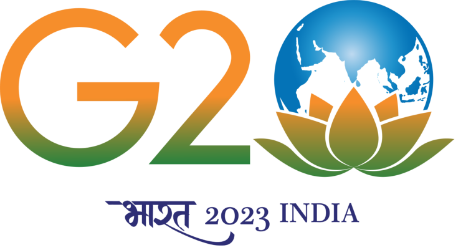SPEECH OF HON’BLE GOVERNOR PUNJAB AND ADMINISTRATOR, UT CHANDIGARH, SHRI BANWARILAL PUROHIT ON THE OCCASION OF THE RELEASE OF THE NINTH FLOWER – BEST OF AMRITA PRITAM AND PANEL DISCUSSION AT CHANDIGARH ON SEPTEMBER 5, 2022
- by Admin
- 2022-09-05 11:25
- It is quite a coincidence that today is 5th September, Teachers’ day, to commemorate the birthday of our “Philosopher – President” Dr. Sarvapalli Radhakrishnan, a great educationist and a humanist.
· On this day we are here to celebrate the wonderful anthology The Ninth Flower – Best of Amrita Pritam.
- As we do so, pay tribute to thelegendary daughter of Punjab, one and only Amrita Pritam.
· Amrita Pritam, a name that people from all spheres of life must have across at some point in their life. The poetess, novelist and essayist, who wrote extensively in Punjabi and Hindi, introduced the conservative Indian society to the whims and fancies of a woman through her pen.
- Her verse Aj aakhan Waris Shah nu (Today I invoke Wari’s Shah) addressed to Punjabi Sufi Poet Waris Shah, in which she laments the tragedy of the partition of Pakistan from India, continues to resound even after seven decades.
- She came out with her first book of poetry, Amrit Lehran (Waves of Nectar), written in the spiritual tradition at age 13. However, it was at 16- with Thandiyan Kirnan (Cool Rays) – that she received critical acclaim and became the first modern poet of Punjab, eventually being considered a pillar of Punjabi poetry. After that we all know that there was no looking back!
· Amrita Pritam had many firsts to her credit; not only was she thefirst female Indian writer to receive theNational Sahitya Akademi Award, she also received the Padma Shri and Padma Vibhushan awards as well as a nomination to the Rajya Sabha. Shedid her language proud by winning the Jnanpith Award in 1982, the first person to win the award for writing in Punjabi. Her many honours also included receiving awards from Bulgaria and France.
- Considered to be one of the most important voices of Punjabi literature, she became a part of the Progressive Writers’ Movement and her writings reflected liberal, avant-garde ideas.
- I believe, she brought Punjabi the glory it had never received before, as far as modern writing in the language goes .
Friends,
the writers and thinkers are the intellectual capital of the nation who enrich it with their creative ideas and literature.
- ‘Word’ and ‘language’ are the most important inventions of human history.
- Literature is the living carrier of the thought-tradition of a society. The more cultured a society, the more refined would be its language. The more awakened the society, the more extensive its literature would be .
- Dr. Sreenivasro commended “ The Ninth Flower – Best of Amrita Pritam” at its release in New Delhi saying that ‘it is a literary service to the country’, this anthology does indeed make a compelling read.
· The transcreator Jyoti Sabharwal, as we can comprehend, had a very challenging task of translating her various genres of writing into English.
- Each language has its own resonance . No work of literature can be transliterated, it will demolish the soul of the book. While working on such a project, one has to capture the emotive essence of the original creator of that verse or prose and bring the resonance of one language to resound its echo in the new avatar .
· A reader should not feel that the book has been translated from another work. It should read like an original body of work.
· Jyoti Sabharwal had the daunting task on hand to retain the resonance and idiom of the Hindi orginal while translating this voluminous literary work into English.
· This 600 page tome brings non-Hindi readers close to Amrita Pritam, and therein, lies “ the growing significance of translated works”.
· India is a country of many languages and we celebrate our linguistic diversity by creating some magnificent works each year which contribute to our literary heritage.
· State governments, authors, translators, lovers of literature and the publishing industry should work together to ensure that the literature of our vernacular languages, both modern and classical, is available to readers in all corners of India.
· Infact, the endeavour should be to spread the beauty, depth and resonance of our literary mosaic to all corners of the world.
· Society, philanthropists and the private sector must play their role in nurturing and promoting the treasure of Indian languages and literature that is India’s heritage. We need to do much more to recongise, nurture and promote excellence in writing in Indian languages. The creativity and talent that is widely present in Indian languages need better platforms and greater exposure .
· Indian writing in English has sparked excitement and recognition across the world. Even greater laurels await us if we can expose the world to the flowering creativity of our vernacular literature .
- You are going to deliberate today upon “the growing significance of translate works”, all the best for a fruitful discussion!
Thank you,
Jai Hind.



